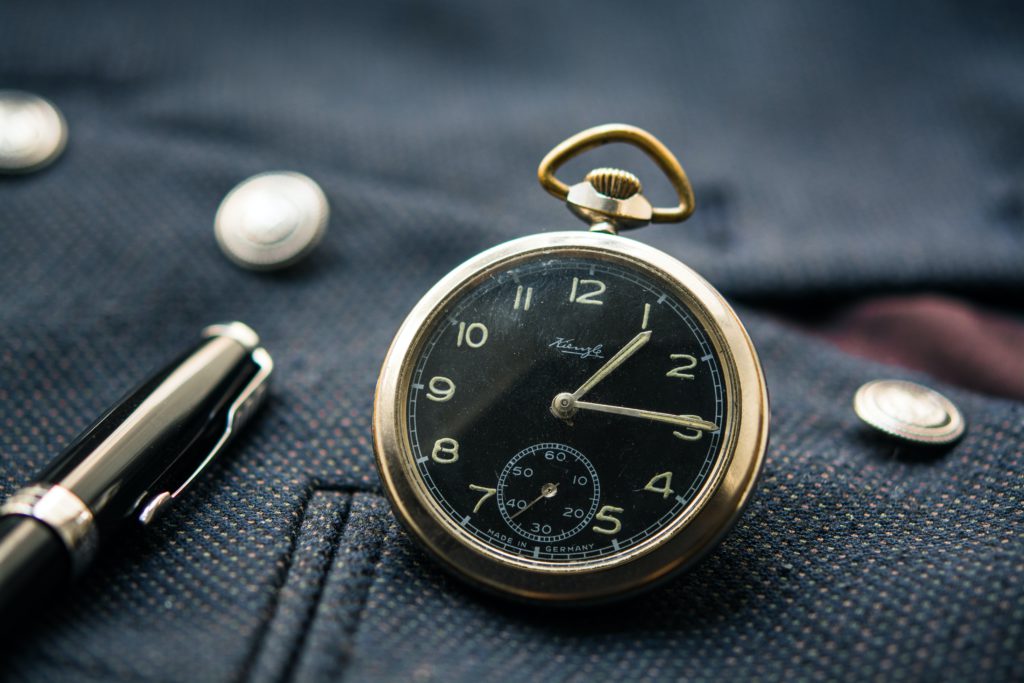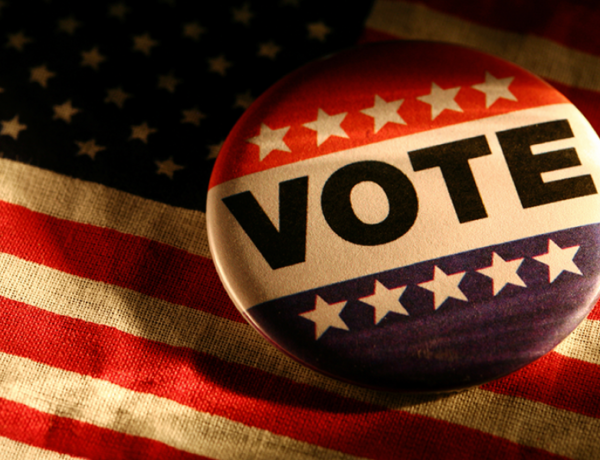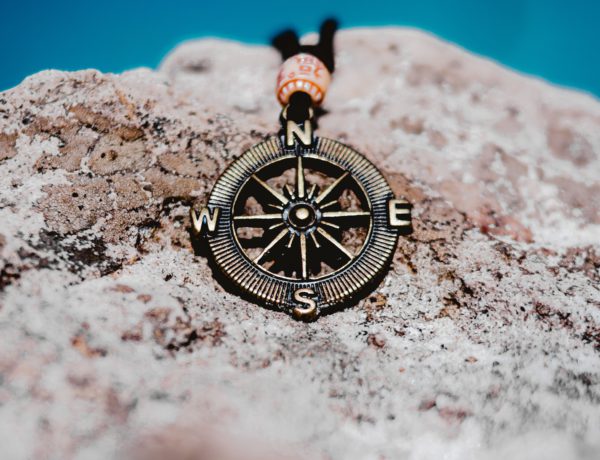When I was probably about eight years old, I asked my father what a gentleman was. He replied that “A gentleman is someone who is gentle, but still manly.” I was sitting with my father, my grandmother and an aunt at the time. After his answer, we spent a few minutes discussing the nuances amongst ourselves.

My grandmother chimed in “A gentleman should be able to take a lady to a restaurant like this and order for her, as well as know what wine would go well with her dinner.” Granny always did like her food and wine, so her answer didn’t surprise me too much.
“A gentleman should also be able to protect those he’s with, if that becomes necessary.” Dad said. “He shouldn’t be a bully, though, and pick a fight.” My grandmother and aunt nodded as they continued to eat their dinner. “Oh, and he shouldn’t dress like a bum, either.”
Aunt Rene chimed in: “That’s right. A gentleman should have manners and class and be able to hold a conversation.” To which Dad added “But he shouldn’t be effeminate or wear lots of cologne.”
Strange that an eight year old would be party to such a conversation, isn’t it? Well, not if you grew up with my relatives. They were always trying to shape me, even from a young age. It was a foregone conclusion that I was going to grow up to be a gentleman.
My grandmother followed up her advice to me a few weeks after this by giving me a small card that had the best vintages of the previous twenty years on one side, and a tip table on the back. “Put this in your wallet” she said. “Every gentleman should be able to leave a good tip and know what the good wines are. Remember this: leave 30% of the total bill if you’re in a nice restaurant, 20% if the waiter was good, 15% if the waiter was average and 10% if the waiter was poor.”
We then went out to dinner to test out what I had learned. I was able to correctly identify that since we were having fish (sole, to be precise) a white wine would be appropriate; I then looked at my handy chart to find a good one and ordered it for my grandmother when the waiter came back. When the bill came, I was able to recommend a 30% tip.
It’s strange what sticks in our memories. I flash back often to this conversation, and to my Dad’s notion about what a gentleman should be. As I’ve gotten older, I realize how right he is. I’ve met a lot of men, very few of whom I would class as gentlemen. Some of them are examples of what not to be.
The more I think about it, though, the more I realize I was given a basic checklist for what a gentleman should be today. Without further ado, let’s see what the characteristics of a modern gentleman are.
“A gentleman should be able to take a lady to a restaurant like this and order for her…”
Every gentleman needs to have at least a passing acquaintance with the finer things in life. This includes literature, philosophy, art…and food and drink. You’re going to need to set aside some time to try different things.
As you’re learning, though, here’s a little guide to dining at fine restaurants:
Do some research
Look up the nice restaurants near you and find one that you (and your date) will like. When you select a restaurant, find out a little bit about it: if you don’t know who the chef is, find out. Also learn if that chef has a particular dish that he’s known for (hint: you may want to order his signature dish).
Scout out the restaurant before you arrive for dinner: where are the restrooms? who will be the maitre’d when you arrive? Scout the tables, too, and see if you can reserve one that is away from both the restrooms and the kitchen. By doing a little work beforehand, you can ensure a smooth experience when you arrive.
If you have any special requests, see if you can arrange for them to be taken care of before you arrive. Here’s an example: one year I wanted to take my wife out for our anniversary and have a special cake for her. I called ahead and made sure that the kitchen could create that special cake (they could and they did). You could also arrange for some flowers to be put on your table before you arrive, or see if you can get a table away from it all.
When you arrive, it’s never a bad idea to discreetly give the maitre’d a little bit of a tip for giving you a good table ($20-$50 should be fine). This also applies to anyone else who helped make your evening special.
If in doubt, ask the chef to choose something for you
Let’s say you’re going to a sushi restaurant and you don’t know what to order. In that case, tell the waiter “omakase” which is Japanese for “I’ll leave it to you”. When you order this way, the chef will generally prepare a series of courses and deliver them to you.
For other restaurants, ask if there is a chef’s tasting menu or just ask the waiter to ask the chef to prepare what’s best that evening. Make sure you tell the waiter of any allergies or food preferences before the chef begins preparing food; that way you’ll avoid problems when the food arrives.
Unless you really understand good wine, ask the sommelier to choose something for you
A related tip if you are drinking wine: if you typically drink wine that comes in a box or a jug, ask the sommelier to suggest a few wines in different price points and pick one that you and your guests will like. How do you know which wine they will like? Ask your guests what kinds of wine they typically like, then ask to taste similar wines in your price points.
Use the opportunity of ordering a nice wine to learn a little bit. You might ask the sommelier to describe the wine, and then see if you can detect the flavors he mentions in the wine. Is the wine dry? How does it compare to other wines in the same region? File that information away for a later date.
For restaurants that don’t have a sommelier, ask the waiter or waitress what they would recommend. It’s not unusual for nice restaurants to educate their waitstaff on the wines that the restaurant carries (including letting them taste the wine) so that they can make informed recommendations to their customers.
Go to a restaurant you can afford
There was a time when gentlemen and ladies went to a fine restaurant and there were no prices on the menu given to the lady. Some today might find this practice sexist, but it was there for the lady’s comfort. Instead of focusing on what something cost, she could just order what she wanted. This custom also assumed that the gentleman had done his research and was not taking her somewhere he could not afford.
That’s still good advice today, gentlemen. Don’t take anyone anywhere where you feel like you need to take out a loan to afford the food. Just choose someplace nice that you can afford. Both you and your date will be relaxed, and that comfort will make for a pleasant evening. Top it off with good conversation and it won’t matter what the menu prices are; you will have an evening to remember. And that’s the whole point, right?
“A gentleman should be able to protect those he’s with…He shouldn’t be a bully…”
Part of being a man, both in the past and today, is being able to protect oneself and others should the need arise.
Every man should have some familiarity with how to defend himself physically. There are lots of great classes that you can take to explore how to defend yourself, from krav maga to plain ol’ boxing. Each of them has a lesson that can be learned.
This does not mean, however, that you should argue with someone who has pulled a gun on you; in that case, you should flee as quickly as possible. There’s a great deal of difference, though, in being able to defend oneself and picking a fight to prove how “manly” you are.
If you have to pick fights to feel manly, here’s the truth: you’re a little boy looking for any attention you can get. Go get some counseling…once you get out of jail.
“[A]nd he shouldn’t dress like a bum, either.”
My father had a very strict idea of how a man should dress in public. I once asked him why he didn’t wear shorts in the summer, even when it was 100 degrees outside: “Only bums on the side of the road wear shorts.”
That made an impression on me, and to this day I rarely wear shorts. Instead, you’ll usually find me in a pair of slacks, a shirt, socks and decent shoes. Except on the beach; then I reserve the right to wear shorts, a shirt (or not) flip-flops or Keens (without socks). Sorry Dad.
To me, not dressing like a bum simply means: wear decent clothing that fits and looks good without being too showy. Do you like wearing suits? Wear one. You don’t like suits, you say? Fine, find some clothing that works for you.
Let me stress the point of not too showy. I see a lot of young men out there who look like the Mad Hatter dressed them. I get that they want to “peacock” to grab attention. It makes me wonder, though, if they know (or care) how foolish they look. She may look at you, guys, but is it just to laugh and then walk away? Not good.
Oh, and get a haircut once in a while. Prefer to wear your hair long? Fine, just make it look clean (this goes for beards and mustaches as well). No man-buns, though. The man-bun is an oxymoron.
“A gentleman should have manners and class and be able to hold a conversation.”
You don’t need to be Emily Post, but you should have some idea of what good manners are. This includes arriving on time to pick up or meet your date (Romantic date? You should be picking them up. Business date? It’s okay to meet.), opening doors for others to go through before you do, knowing which utensil to use when you are eating, pulling out your date’s chair, keeping your elbows off the table when eating, and saying please and thank you (the proper response to which is “You’re welcome.” not “No problem.”). Oh, and for the younger crowd: good manners also means taking off your hat indoors. Please.
Your phone should not be anywhere near you or your date when you are eating. Ideally, you should have left your phone in your car. The idea, after all, is to make a connection with your date (even if making a connection just means talking business), not to be distracted by the incessant dings of a smartphone. If you’re constantly checking your smartphone the message you send to the other person is: you’re not important to me.
If you absolutely must have your phone on you (your profession doesn’t require you to deal with life and death situations and your parents/spouse/children are perfectly healthy? Lose the phone.), try putting it in “Do Not Disturb” mode; for those people who actually must be able to contact you, you can add them to a preferred list so that their messages come through. If a call does come through, excuse yourself from the table gracefully and take the call in a quiet place that is out of the other diners’ hearing. You wouldn’t want to hear someone else’s conversation, so don’t make them hear yours. Tell the person you’re talking to that you’re in the middle of something and ask if you can call them back. If there is a real reason to take the call, do everything you can to make it short while remaining polite.
Good manners also mean that after the date is over, you should call your date and let them know you had a good time. If it was a romantic date (as opposed, say, to dinner with your Mom or a business dinner) you might want to send your date flowers or a card or both. What if you didn’t have a good time? Call them (not text) anyhow and thank them for going out with you; after all, they did carve out time for you in their life.
As to conversations: if you don’t know much about your date, elicit some information about them. Note that this does not mean conduct an interrogation. It simply means try to make a connection with your date. You might start telling them something about you: “You know, I really like Star Wars. What about you?” If you’re at a business dinner, you might mention that you know a colleague that they also know.
It’s also a good idea not to insert too much snark or sarcasm into your conversation unless you know the person very well (even then it may not be a great idea). It is polite to comment on what the other person is saying, but don’t interrupt them to do so; just file your comment away for when it is your turn to speak. Instead of commenting, work on listening.
If you can listen well and make constructive comments, people will want to talk you. Too often, though, people don’t listen to each other. Their brains are constructing what they will say in response instead. As a result, others don’t feel listened to — and that’s no way to create a relationship with someone.
“But he shouldn’t be effeminate or wear lots of cologne.”
Have you ever encountered a guy who smelled like someone dropped him in a vat of cologne? Or maybe one who wanted everyone to see his chest hair and gold chains? Don’t be that guy.
Before I get a bunch of hate mail saying I’m insensitive, let me make this clear: when I use the word “effeminate” I mean just that — a feminineness that is inappropriate to a man. It has no correlation to sexual orientation. Here’s what it does mean.
If a man is dressed in such a way that all eyes are on him instead of his date, that’s effeminate. If a man is wearing too much cologne, that’s effeminate. If a man is awkwardly shy, that’s effeminate. Sporting a man-bun? Definitely effeminate. These are not fatal flaws, however; they simply represent areas where a man needs to work on himself.
Here’s what is not effeminate in a man: being nice, showing appropriate vulnerability, displaying empathy, expressing sadness (even to the point of crying), and being humble about one’s achievements. The point of not being effeminate is to be fully manly without falling into the trap of being a “macho man” or “stone cold” anything.
Remember that before you’re a man, you’re a human being. As such, you have feelings and opinions. It’s fine (and indeed, essential) to express these, as long as you don’t devolve into a blubbering mess or a tornado of rage. If you can communicate your needs and respect other people’s boundaries in the process of expressing yourself, you’re expressing yourself in an appropriate way.
If you need a crash course in boundaries, here’s a link to an article from the Good Men Project that explains them well: How Men Can Set Healthy Boundaries. If you’d like to explore boundaries in more depth, here’s an article on Medium that gives links to several good titles: The Top Five Must-Read Books on How to Set Boundaries.
A modern gentleman should live by the code of being “gentle, but manly”. Instead of being a stereotype, though, the modern gentleman should strive to express himself authentically and appropriately. He should also have good grooming habits, dress well, be able to hold a good conversation, know how to enjoy the finer things in life and be himself.


